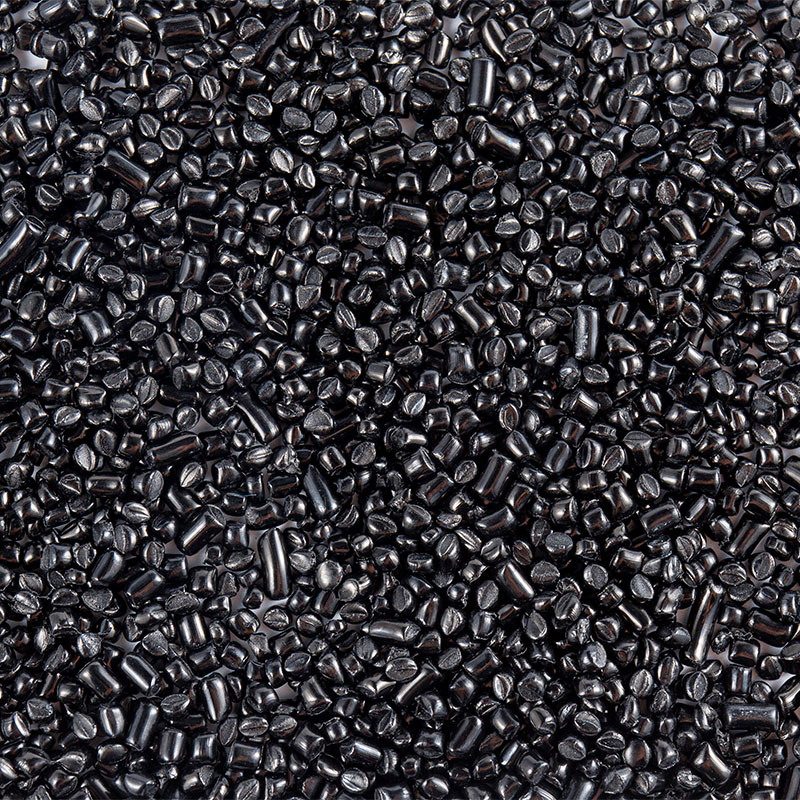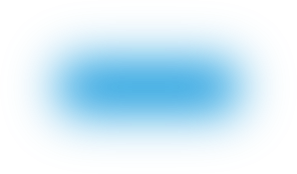What is PBT Carrier Black Masterbatch? What are the structural and performance differences between it and PET or PE carrier black masterbatch?
PBT Carrier Black Masterbatch is a high-concentration coloring masterbatch made by melt-blending PBT as the carrier resin, combined with high-blackness carbon black pigment and various dispersing and stabilizing agents at high temperatures. It is mainly used to impart a uniform and stable black appearance to PBT and other compatible engineering plastics, while enhancing the opacity, weather resistance, and UV resistance of the products.
PBT differs significantly in structure from other carrier resins such as PET and PE, which determines the different performance characteristics of their corresponding black masterbatch systems:
- Differences from PET Carrier Black Masterbatch: PET and PBT are both polyester materials, but PBT has a shorter molecular chain, a faster crystallization rate, a slightly lower processing temperature (approximately 240–260°C), and slightly better thermal stability. PBT has better flexibility and impact resistance than PET, therefore it is more widely used in high-toughness injection molded parts. PBT carrier masterbatch exhibits superior flowability and compatibility, allowing direct blending with PBT base materials or PBT modified systems (such as GF-PBT) without phase separation or degradation.
- Difference from PE Carrier Masterbatch: PE carrier masterbatch is a non-polar system, primarily used in general-purpose plastics (such as PE and PP). It offers easier color dispersion but suffers from poor compatibility with engineering plastics. Using PE carrier masterbatch in PBT systems can lead to interfacial incompatibility, whitening of products, and decreased mechanical strength. In contrast, PBT carrier masterbatch is a polar system, capable of complete integration with PBT resin, forming excellent intermolecular interfacial bonds, resulting in superior dispersibility, thermal stability, and mechanical properties.
- Structural and Performance Characteristics: PBT carriers possess a high glass transition temperature (approximately 45°C) and crystallinity (approximately 40%), enabling them to withstand high processing temperatures and preventing carbon black agglomeration or precipitation. Their excellent chemical stability and low hygroscopicity allow the masterbatch to maintain stable color and gloss even at high temperatures. Meanwhile, PBT itself possesses excellent electrical insulation and dimensional stability, making black masterbatch highly suitable for injection molding production in the electrical, electronic, and automotive engineering fields.
Why must masterbatch be dried before extrusion granulation? What appearance or performance problems will occur if drying is insufficient?
PBT is a highly hygroscopic polyester resin. Its molecular structure contains polar functional groups such as ester groups (–COO–) and carbonyl groups (C=O), which can form hydrogen bonds with water molecules. Therefore, PBT particles readily absorb moisture from the air in an open environment. Even a moisture content of only 0.1% can trigger severe degradation reactions during processing.
In the production of black masterbatch, if the PBT carrier is not sufficiently dried, moisture will cause the following problems during the high-temperature mixing stage of twin-screw extrusion (approximately 250°C–270°C):
- Hydrolytic degradation reaction: Moisture breaks the ester bond structure of PBT, leading to a decrease in molecular weight and melt viscosity, thereby affecting the mechanical properties and processing stability of the masterbatch.
- Color Change: Hydrolysis at high temperatures is accompanied by oxidation, causing discoloration of the polyester matrix surrounding the carbon black, resulting in graying, whitish, or brownish discoloration in the finished product.
- Bubbles and Pores: Undried PBT releases water vapor during melting, forming micropores or bubbles in the masterbatch or final product, affecting surface smoothness and appearance.
- Poor Dispersion: The presence of moisture hinders sufficient wetting and coating of carbon black and resin, leading to carbon black particle agglomeration and the appearance of colored spots, bright spots, or streaks in the finished product.
- Decreased Mechanical Properties: Degraded PBT molecular chains shorten, resulting in a significant decrease in the impact resistance, tensile strength, and heat resistance of the product.
Therefore, before extrusion granulation, the PBT resin and carbon black premix must undergo vacuum or hot air drying, generally at 120–140°C for 4–6 hours, with a target moisture content below 0.05%. For high-end black masterbatch production, online dehumidification and drying systems (such as a dehumidification rotary drum + hot air combination) are also employed to ensure the stability and color consistency of the entire mixing process.
What are the main applications of PBT carrier black masterbatch?
PBT carrier black masterbatch is widely used in high-end engineering plastics products due to its excellent thermal stability, electrical insulation, chemical resistance, and surface finish. Typical applications include automotive parts, electronic and electrical components, household appliance structural parts, and industrial machinery components. Unlike general-purpose plastic systems, PBT materials often operate under high temperature, high humidity, and high mechanical stress environments for extended periods. Therefore, the black masterbatch used with PBT must achieve extremely high levels of dispersibility, thermal stability, and compatibility.
In the automotive industry, PBT carrier black masterbatch is mainly used in electrical connectors, lamp brackets, sensor housings, instrument frames, and air conditioning system components. Automotive interior parts require a deep, uniform black color, a surface free of bright spots, and resistance to heat aging and low VOCs to ensure no fading or exudation under prolonged high-temperature environments. Some automotive electrical systems also require the masterbatch system to have flame retardant ratings and antistatic properties to meet safety standards.
In the electronics and electrical industry, PBT carrier black masterbatch is widely used in connectors, sockets, switch housings, relays, and other applications. PBT material itself possesses excellent dielectric properties and dimensional stability, while the application of black masterbatch not only improves appearance and light-shielding properties but also achieves electromagnetic shielding or antistatic effects through a special carbon black system. For high-end electronic devices, the masterbatch must maintain low ash content, low precipitation, and high heat resistance to prevent changes in the conductive path on the product surface or the risk of electrical breakdown.
In the home appliance and industrial component sector, PBT black masterbatch is widely used in motor housings, fan frames, plugs and sockets, and mechanical structural components. These applications require products with a high-gloss finish, stable color, and long-term wear resistance and anti-aging properties. Some industrial applications also require a balance between chemical corrosion resistance and dimensional accuracy, demanding that the masterbatch formulation maintain stable material performance under long-term operation.
In these demanding application scenarios, E-LUCK, as a professional manufacturer and solution provider specializing in industrial black masterbatch, has demonstrated strong systemic capabilities and a collaborative mindset. E-LUCK's core competitiveness lies not only in material formulation but also in the control and integration of the entire production and application process. The company adheres to the philosophy that "Our strength lies not only in materials, but in process control and client-oriented collaboration", treating each customer's production system as an independent system and achieving seamless integration through end-to-end technical support.
E-LUCK has established a full-process quality control system from carbon black raw materials to masterbatch granulation, strictly monitoring key indicators such as carbon black dispersion, melt viscosity, and thermal stability. Simultaneously, the company possesses comprehensive internal laboratory testing capabilities, capable of testing melt flow index, ash content, dispersibility, and tinting strength to ensure consistency in performance and appearance for each batch of masterbatch.
More importantly, E-LUCK possesses rapid formulation iteration and performance simulation capabilities, enabling rapid prototyping and process optimization based on specific customer applications (such as PBT glass fiber reinforced systems or flame-retardant systems), ensuring a perfect match between masterbatch processing conditions and substrates, equipment, and finished products. Through professional pre-sales technical selection guidance and after-sales performance tracking services, E-LUCK achieves deep collaboration with its clients, helping manufacturing enterprises improve production efficiency and product consistency.
In the high-end market for PBT carrier black masterbatches, this end-to-end control—from material design to process verification, from testing feedback to performance closed-loop—makes E-LUCK stand out in automotive, electronics, and industrial applications. It is not only a masterbatch supplier but also a professional partner that integrates itself into the customer's production system with a systematic approach, providing robust technical support and engineering guarantees for the coloring and performance optimization of high-end engineering plastics.

 English
English Español
Español










